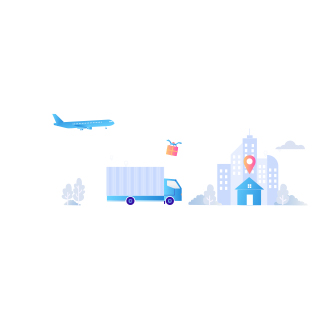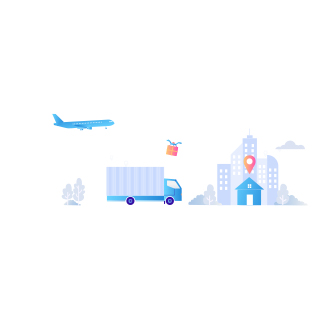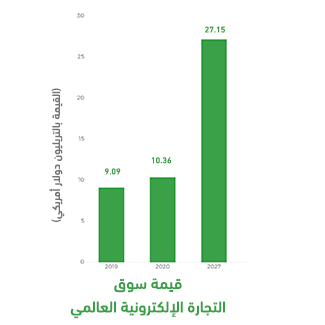Mashroo3k Economic Consulting Company provides a comprehensive feasibility study for the logistics services application project, which is an electronic application that provides communication with shipping companies specialized in logistics services and internal and external shipping, and which have all developed shipping methods, including trucks or small transport vehicles, and others.

The logistics services application provides customers with easy access to services such as shipping and unloading, transportation, inventory management, storage, material handling, and packaging — all through an online platform. The app offers various types of logistics services, such as:
Administrative services: include planning, implementation, auditing, and control of goods storage.
Third party: In this type, the logistics application provides the ability to receive goods from one company, store them, and then transport them to another company.
Fourth party: The application sometimes plays the role of the fourth party, as in addition to receiving, delivery and distribution, it contributes to the development of logistics services activities in place in companies.
Business logistics: The application also offers specialized logistics services that may involve airlines, the transportation and supply of goods from companies and their distribution, or securing the transportation of goods in emergency situations.
Thus, Mashroo3k Consulting Company aims to expand the target markets for logistics services and capitalize on advancements in technology, commerce, and electronic services. The application operates through integrated databases for the transportation and logistics sector.



Compatible with all Android and iOS devices.
Control panel available in both Arabic and English.
User interfaces are designed to be intuitive and user-friendly.
Easy to add or block new clients using their phone number.
Option to receive service fees either in cash or through electronic payment (MasterCard or Visa).
Ability to receive complaints and respond to customer messages.
Announce new services instantly by sending bulk notifications to customers.
Access to customer ratings for each service and the employee who performed it.
Ability to chat with customers via text.
Protection against sabotage or hacking, as it is equipped with the strongest security and protection systems.
24/7 technical support service available.
Executive summary
Study project services/products
Market Size Analysis
Risk Assessment
Technical study
Financial study
Organizational and administrative study

A Look at E-Commerce Statistics in the GCC Countries:
In 2015, e-commerce contributed approximately 0.4% of the total GDP of the Gulf Cooperation Council (GCC) countries, amounting to $5.3 billion.
By 2020, with the economic shifts brought about by the COVID-19 pandemic, the e-commerce market in the GCC had become one of the fastest-growing markets globally, with a growth rate exceeding 35%. The market size was estimated at around $24 billion, surpassing earlier projections of $21.6 billion.
Here is a detailed look at the size of the e-commerce market in the GCC over the past five years:
Global reports predict that e-commerce in the GCC will grow at an accelerated rate between 2020 and 2022 by 20%, and by 14% through 2025. Without the impact of COVID-19, the expected growth would have been 14% and 10%, respectively.
The average percentage of households purchasing goods online rose from 2% to over 8%. In comparison, this rate ranges between 16% and 25% in developed countries like the United States, South Korea, and Germany. However, projections suggest that GCC countries will soon reach similar global levels.
Visits to popular shopping websites increased by 50% in 2020 compared to 2015, with the number of users rising from 3 million to 21 million.
The number of e-commerce platforms and applications has tripled compared to 2015.
The time users spend on websites such as Amazon, Namshi, and Noon has increased, with average daily browsing times ranging from 9 to 12 minutes and users viewing between 7 to 8 pages.
Food and grocery delivery services are among the fastest-growing sectors in e-commerce, with a growth rate of 20% and a current market size of $3 billion in the GCC.
Fashion and beauty activities represent a significant investment opportunity in this sector, with an 18% growth rate and a current market size exceeding $5 billion in the region.
A Detailed Outlook on E-Commerce Growth Forecasts in the GCC for the Next Five Years:
60% of millennials shop online.
By 2025, the GCC e-commerce market is expected to reach $50 billion.
Millennials make up more than 45% of the population in GCC countries, making the region a highly promising market for e-commerce.
